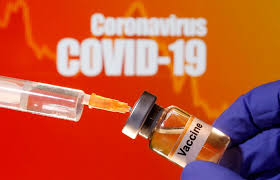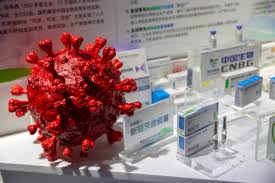China joins global effort to ensure COVID vaccine access for all

United Nations: China is among three additional countries to have signed on to a global initiative aimed at ensuring fair and equitable access to a coronavirus vaccine once developed, according to the World Health Organization (WHO), a UN specialized agency.
Together with South Korea and the tiny Pacific island of Nauru, China joined the COVAX Facility this week, bringing the total number of participating nations and economies to 171, WHO Director General Tedros Adhanom Ghebreyesus announced Friday during his regular media briefing in Geneva on the pandemic.

“The world is eagerly anticipating the results of trials of vaccines against COVID-19, which are needed for WHO authorization”, Tedros said.
“Once we have an effective vaccine, we must also use it effectively, and the best way to do that is by making sure it’s available to all countries equitably through the COVAX Facility.”
The global mechanism will work to deliver two billion doses by the end of next year.
It currently has the largest portfolio of potential vaccines, with several in advanced human trials.
Dr. Bruce Aylward, Senior WHO Advisor said, “The more countries that participate in the COVAX Facility, the greater opportunity of being able to roll out vaccines as rapidly as possible, as fairly as possible, to reduce the risk of severe COVID disease globally.”
He added that details on China’s enrollment “(are) still being worked out”, with specific information anticipated early next week.
The United States and Russia have not so far signed on, it was pointed out.
WHO has also welcomed the announcement this week that vaccine developer Moderna will not enforce patent rights over its COVID-19 shots during the pandemic.
Tedros expressed appreciation for “this act of solidarity”, which aligns with another initiative for sharing scientific knowledge, data and intellectual property in efforts to beat back the disease.
The COVID-19 Technology Access Pool (C-TAP) was launched in May, drawing on existing mechanisms such as the UN-backed Medicines Patent Pool, which expands access to treatments for HIV and hepatitis for low and middle income countries.
Tedros began the briefing by congratulating sister UN agency the World Food Programme (WFP), which was awarded the Nobel Peace Prize earlier on Friday.
His praise was echoed by Dr. Michael Ryan, Executive Director of WHO’s Health Emergencies Programme, who has worked in conflict areas and led many responses to epidemics, including containing Ebola in the Democratic Republic of the Congo.
“WFP not only feeds the hungry but moves most of the humanitarian workforce into the most extreme of environments,” Dr. Ryan told reporters.
“WFP feeds and protects us in the field and allows us to do our job. We used to say this in West Africa, and I will say it to the world: WFP rocks”.





